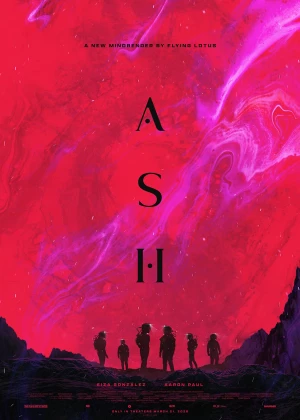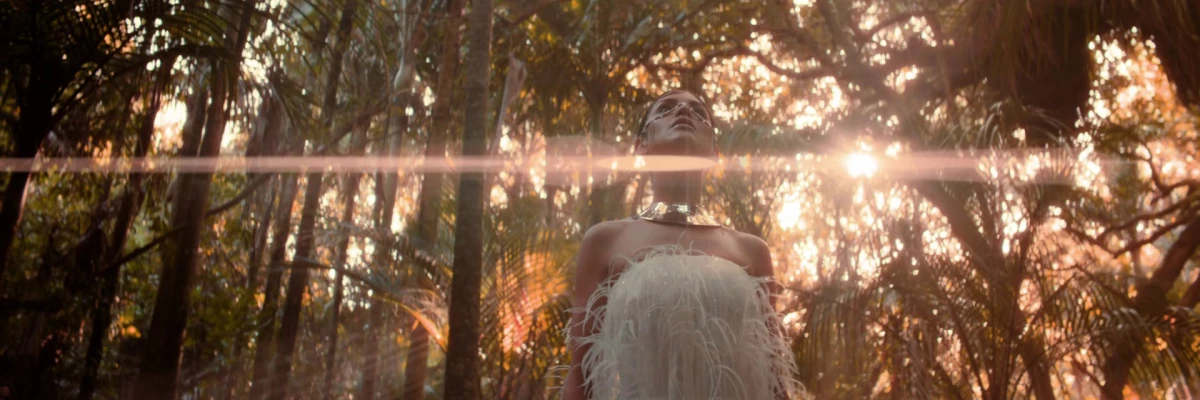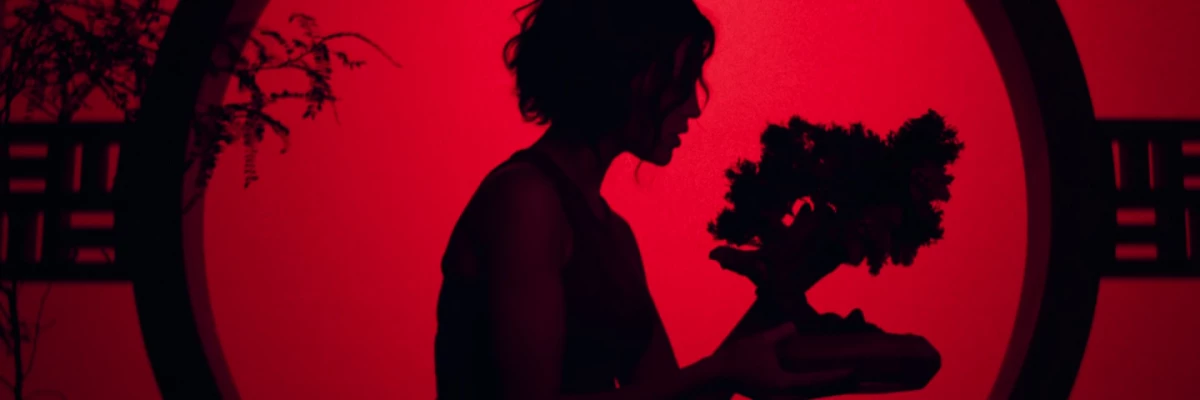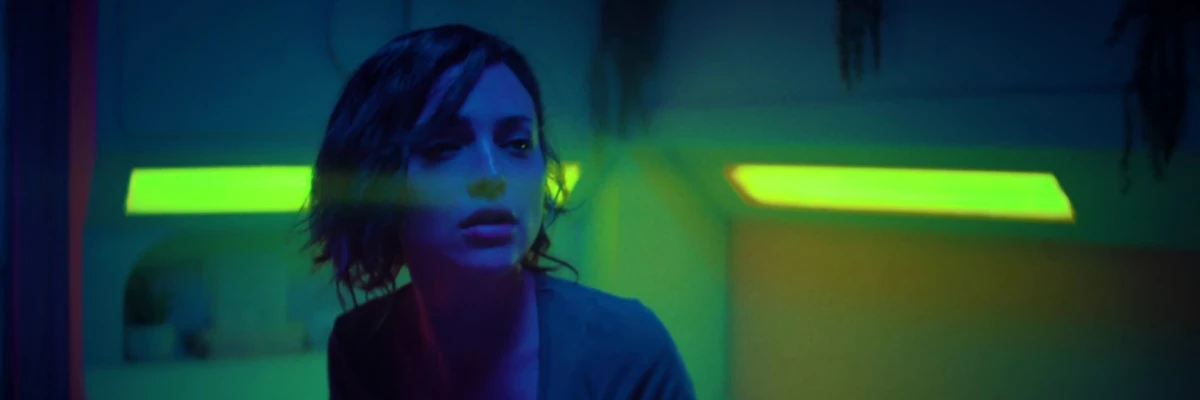Ash

It took him eight years, but Flying Lotus is back with a new film. With Kuso, he showed a lot of promise, but little restraint. In Ash, he's trying to turn that critique on its head, without losing too much of his signature style. The result is an ultra atmospheric sci-fi horror film that doesn't necessarily wow with its concept and plot, but all the more with its nifty presentation. It's the kind of film I've been craving for a while now, and while not up there with the very best, it's a fine treat that will surely please genre fans. And now that it has hit streaming services, there are no more excuses.

Flying Lotus made a name for himself producing music, creating certain (personal) expectations. These weren't quite fulfilled with Kuso, and I have to admit the film didn't prompt me to try any of the man's music. I'm not saying Ash will, but at least the promise of a music-abled man directing is better met. Ash is a much more coherent experience than Kuso, and the score and sound design are partly to thank. There's still room for improvement, but maybe I just have to go and listen to one of the man's albums to get a better idea of where he's coming from.
Ash is a sci-fi horror hybrid that isn't very shy of its references. While people are eager to quote films like Alien, Event Horizon, and The Thing, I think it makes way more sense to reference movies like Eden Log, Beyond the Black Rainbow, and A.I. Rising. Ash is a film that thrives on mood and style. The plot and setting are mere excuses to toy around with sci-fi and horror aesthetics. So yes, this might be a core genre flick that nicked a few ideas and concepts from the biggest films in the genre, if you're hoping for a similar experience, you're going to end up disappointed.
A young woman wakes up on a distant planet. She's all alone in a facility, and the rest of the crew is dead. She remembers nothing of the events that transpired earlier, but it's obvious that things went south. After a quick look around the place, a man arrives after receiving a distress call. They try to reconstruct what might have happened, and slowly she begins to remember flashes. It seems that an expedition outside of the premises yielded an unexpected find. A scientific breakthrough that would cost most of the crew their lives, and the threat is still around.

The aesthetic makes up a big part of the overall appeal, and it didn't disappoint in the slightest. The lighting is moody, the use of color is powerful, the designs look badass, the editing is snappy, the special effects are on point, the horror bits look gruesome, and the gritty tech vibe is a perfect fit for the setting. I believe things could've been pushed even further, then again this would probably alienate the audience even more. Rather than nitpick too much, I'm happy to see this aesthetic is making a return, and hopefully, this isn't just a one-off.
The score and sound design are perfectly in sync with the visuals. The score is brooding and moody, with more ethereal-sounding pieces to increase the mystery. No comments except that maybe it's a bit too expected, especially for an artist who made his name on the Warp label. But the sound design is impeccable. From all the little sound effects of the space gear to the Japanese robot voice. In combination with the airtight editing, it makes for an impressive audiovisual experience. It's always satisfying when a film nails its sonic elements, and Ash is a prime example.
The performances are a little less satisfactory. Eiza González does a decent job, but it's impossible to ignore that she was at least in part hired for aesthetic reasons. Aaron Paul fared worse, sometimes bordering on being actively annoying. It's a good thing that this film doesn't need to lean on its cast, it still would've been nice to have some better leads. Secondary roles from Iko Uwais and Flying Lotus himself are more satisfactory, but their screentime is limited. So yeah, while the cast could've been better staffed, I don't think there's a substantial negative impact.

The first hour is quite slow and more focused on exploring the setting and building up the mystery. Again, the premise is familiar and the plot is simple, so if that's what you're here for, the film may feel a tad empty and flailing. The final 30 minutes are more action-driven and double down on the horror promise. It's nothing you haven't seen a million times before, but at least it'll keep you from nodding off if the mood hasn't captured you. I'd argue you're missing the essence of the film, but looking at the critiques Ash has been getting, that's my best bet for the often tepid reactions I've been seeing.
While not as zany and/or original as Kuso, Ash offers more compelling proof that Flying Lotus is more than fit to direct feature films. He takes a basic (yet effective) genre film and adds a layer of polish that is rarely seen. The presentation and styling are impeccable and easily make up for narrative simplicity and any casting issues, making this one of the best sci-fi horrors in years. Hopefully, Flying Lotus won't take as long to start work on a new feature, as I wouldn't mind having a few more directors like him around. For now, though, I simply hope this film will find its audience.